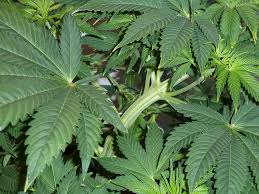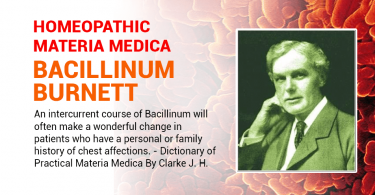The best way to describe the Materia Medica of a rare remedy is through cases. Today I will share my experience with rare Indian homoeopathic drugs.
I remember in early 80’s in the city of Bombay there was an acute water shortage during the summer. I used to have patients who presented to me with recurrent boils which were painful and burning and accompanied by diarrhoea. The diarrhoea was characterized by watery yellowish stool, lot of
mucus flakes and severe pain in the stomach with nausea
accompanied by vomiting.
There was dryness of mouth with extreme thirst accompanied by pain in the abdomen. The remedy which helped me was Achyranthes aspera.
Achyranthes aspera is a plant that is found all over India. It belongs to the family Amaranthaceae. It is one the best remedy in homoeopathy which was used by Dr. Mahendra Lal.
Sarkar in cases of diarrhoea and also in cases of epidemic of cholera. I usually use this medicine in 3 X, I give 3 pills 6 hourly in very acute condition and in semi-acute form I give 3 times a day.
Another case which I would like to describe again is of diarrhoea, where the patient complains of severe bloody stool. In this type of case you get severe inflammation of the colon along with bloody stools. You also have summer
diarrhoea in such a case but here the stools are more bloody, the patient is extremely weak, tired and there is profuse salivation. Well, I am talking about a very important Indian homoeopathic drug – Cynodon dactylon.
Cynodon dactylon is made from grass which we commonly call in Indian language as Durba. Another very important symptom that I have observed in cases of Cynodon dactylon was the patient feels extremely giddy and faint, after losing lot of blood from the stools. Many patients also declare that they have a history of recurrent epistaxis.
Another rare remedy in homoeopathy for diarrhoea which I have used a lot in my practice is Atista indica. The patients present with severe heartburn, acidity and indigestion especially to the fatty food and they complain of severe rumbling and gurgling and cutting pain in and around the umbilicus that is usually worse after eating and better by passing flatus. The stools are yellowish, watery, non-offensive, but the most important thing that I see in such patients is huge amount of borborygmi and passage of large quantity of flatus. Many times the diarrhoea is accompanied by fever, and when the fever comes the legs become extremely heavy, the mouth is usually dry with unquenchable thirst. I again use this medicine in 2X potency, 3 pills 6 hourly
in an acute condition and in semi-acute I use it 3 times a day.
Another rare and acute Indian homoeopathic drug that I use in my practice is for the cases which usually have severe bleeding or hemorrhage from the rectum, with or without diarrhoea or dysentery. Now here the hemorrhage color is usually dark red and clotted and the hemorrhage is usually a
painless hemorrhage. The name of the remedy is Blumea odorate.
Blumea odorate belongs to the Compositeae family and in India we call this herb as Kuksima. Another remedy which I use in my practice from the Indian
Homoeopathic drugs is in cases where the diarrhoea is associated with acute nausea and here the nausea is so prominent that the case may resemble as if we are treating a case of Ipecac. The diarrhoea of course is deep yellow, frothy, but along with nausea there is excessive salivation. The
salivation is so severe that it may also resemble Tabacum.
Now in such cases usually when you examine the stool you may get worms or you may get Entamoeba histolytica, the drug that I am talking about is Clerodendron infortunatum. This drug belongs to Leguminoceae family, I
use this remedy in 6X potency or 30C potency, if it is acute I use it every 6 hourly.
Well, these are some of the rare remedies especially from the Indian Homoeopathic drugs; they are extremely useful especially when there are many patients in OPD and when there is not much time to take detailed history for a constitutional remedy. At such times, I make use of such rare
Indian homoeopathic remedies.
Source: December 2010, The Homoeopathic Heritage




